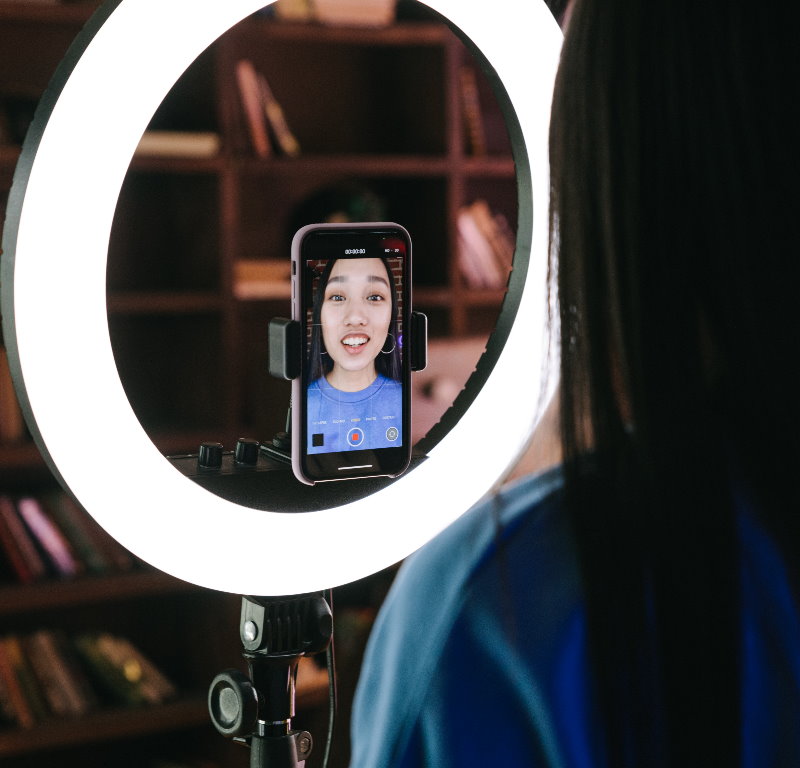This is the last part about the space you record your sessions or zoom meeting virtual meetings or virtual summit. I also cover the challenges with lighting for those that wear eye-glasses.
Set lighting challenges
This is Grant: The Webinar Guy.
For the last few episodes, I’ve been covering several things surrounding your webinar recording environment- specifically web cams or cameras and mics. Then I talked about really thinking about the brand you’re putting forward in that “look” you’re broadcasting.
And I promised to cover lighting soon.
Well, here we are. Finally. I’m going look at lighting a bit differently than you might expect.
As mentioned previously, there’s plenty of video tutorials on lighting you can find. As with everything on the ol’ interwebs, some are better than others. But I had a unique challenge. Well, at least unique to those of us that wear glasses.
The first time it occurred to me that I was going to have a challenge was a long while back when I was on a live zoom meeting or virtual training I was watching. The trainer had done everything correctly on lighting. The back lighting was great. A couple focus lights were aimed to eliminate dead spots in the room. And they’d used a ring light to light there face well.

If you’re not familiar with ring lights, its exactly like it sounds. It’s a round lamp and on most setups you can put your camera in the middle, so you’ve got (mostly) perfect lighting.
Like I said, their lighting was nearly perfect. Except one thing. They’d not considered how ring lights would act on their eyeglasses.
What happens with glasses and ring lights is that the ring lights put a fairly large white dot on the glasses. And the wearer cannot see that dot (unless they look in their feed).
So the whole time this presenter talked, every, single, move of her head was accompanied by that little dot dancing all over her glasses.
Talk about distracting!
Many people wear glasses! So how do I beat it? With almost ZERO direct light. Everything is off angle as opposed to straight on (see ring light!).
I’m also told a polarizing filter on your camera lens can help eliminate that. My results varied.
Let’s wrap up lighting. I really didn’t intend for this to be THE ANSWER to your lighting issues, I wanted to call attention to it. I see no point in redoing training and instruction that’s already out there.
But many presenters don’t consider not only how they look, but the room around them.
A couple tips, if you’re using a “natural Setting” (no green screen), watch for dark “dead” spots in the room where a little fill would help.
On the other hand, glare can be a problem. Think about sun movement. If your virtual meeting is only 20 minutes, likely not a big deal. However, if you’re running an all-day virtual summit or a webinar of any length, pay attention in the days ahead to see how your space is affected by sun travel. You might be surprised. Also is planning for one type lighting (say overcast) and you get another (yeah, the sun came out).
Most possibly, a green-screen setup can be better as you pretty much set it up and forget it. It can also help eliminate the variables in a naturally lit space. And the same goes for a dedicated recording space using a “natural” set.
But that glasses thing. Again, just pay attention to this and you’ll be fine! One last trick I learned. I have four monitors in my studio. Yeah, four. It’s GREAT for screen and software management, but yikes! If you have windows open on your desktop, use white backgrounds on a WORD script, that also will drive you nuts with glasses. TOOO much light to reflect. So I have a black desktop I switch to before recording and I use a blacked out Microsoft word setup to read scripts. It helps!
Oh, by the way, it took two different camera set ups and more lighting changes than I care to try to recount and the black screen/close windows you don’t need open trick to get my glasses and lighting “right”. Best luck!
This series is for smaller organizations and solopreneurs that may not be tech savvy, don’t know all the steps, or don’t WANT to know all the steps.
Over the series, I’m going to lead you through the significant decisions and capabilities you’ll need to “Zoom to Webinar Success!”
As always, if you need help now, don’t hesitate to reach out!
Thank you for watching!



